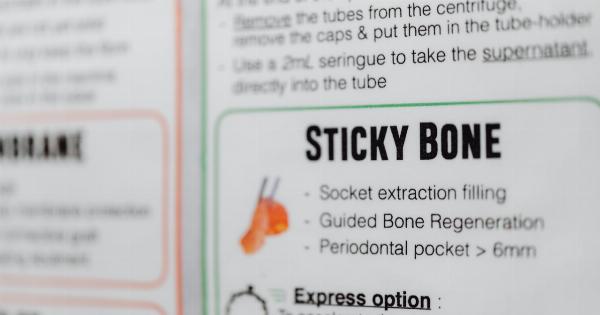Hot flashes, also known as hot flushes, are a common symptom experienced by many women during menopause. It is characterized by a sudden feeling of intense heat, often accompanied by sweating, flushing of the face, and rapid heartbeat.
Hot flashes can be uncomfortable and disruptive, but there are several simple tips that can help you manage and minimize their impact on your daily life. In this article, we will explore some effective strategies to deal with hot flashes and regain control of your well-being.
1. Dress in Layers
Wearing lightweight and breathable clothing is essential when experiencing hot flashes. Opt for natural fabrics like cotton or linen that allow air circulation and help wick away moisture.
Layering your clothing allows you to easily adapt to sudden temperature changes. You can quickly remove or add a layer as needed, giving you more control over your body temperature.
2. Avoid Triggers
Identify and avoid any triggers that potentially worsen your hot flashes. Common triggers include spicy foods, caffeine, alcohol, hot beverages, and smoking. Keep a food and beverage diary to track which items are more likely to trigger hot flashes.
By avoiding these triggers, you may notice a significant reduction in the frequency and intensity of your symptoms.
3. Stay Cool
Creating a cool environment can help alleviate hot flashes. Use fans or air conditioning to regulate the temperature in your home or workspace. Keep a handheld fan or a small mister with you to provide instant relief during a hot flash.
Using breathable bedding and wearing moisture-wicking sleepwear can also keep you cool and comfortable while sleeping.
4. Practice Deep Breathing
Deep breathing exercises can help you manage hot flashes by relaxing your body and mind. When you feel a hot flash coming on, sit down in a comfortable position and take slow, deep breaths.
Inhale deeply through your nose, hold for a few seconds, and exhale slowly through your mouth. Focusing on your breath can reduce stress and anxiety, which are known to worsen hot flashes.
5. Maintain a Healthy Weight
Being overweight or obese can increase the frequency and severity of hot flashes. It is important to maintain a healthy weight through regular exercise and a balanced diet.
Engage in activities like walking, swimming, or yoga to help manage your weight and overall well-being. Consult with a healthcare provider to develop a personalized exercise and diet plan tailored to your needs.
6. Stay Hydrated
Drinking plenty of water throughout the day can help regulate your body temperature and reduce the frequency of hot flashes. Carry a reusable water bottle with you and make it a habit to stay hydrated.
Sipping on cool water can provide instant relief during a hot flash and prevent dehydration.
7. Practice Stress Reduction Techniques
Stress can trigger or intensify hot flashes. Incorporate stress reduction techniques into your daily routine to help manage hot flashes effectively. Try activities such as meditation, yoga, tai chi, or mindfulness to relax your body and mind.
Engaging in relaxing hobbies like reading, gardening, or listening to calming music can also help reduce stress levels.
8. Take Natural Supplements
Several natural supplements have been found to alleviate hot flashes for many women. Black cohosh, evening primrose oil, and red clover are some of the commonly used supplements.
However, it is important to consult with your healthcare provider before starting any new supplements to ensure they are safe and appropriate for you.
9. Acupuncture
Acupuncture, a traditional Chinese medicine technique, has shown promising results in reducing the frequency and intensity of hot flashes.
By inserting thin needles into specific points of the body, acupuncture can help balance hormones and release endorphins, providing relief from hot flashes. Seek a licensed acupuncturist who has experience in treating menopause symptoms.
10. Hormone Replacement Therapy
If hot flashes significantly disrupt your daily life and other methods have failed to provide relief, hormone replacement therapy (HRT) may be an option to consider. HRT involves taking estrogen and/or progesterone to alleviate menopausal symptoms.
However, HRT is not suitable for everyone and should be discussed with a healthcare provider, considering potential risks and benefits.
In Conclusion
Hot flashes can be challenging to deal with, but implementing these simple tips can help you effectively manage and minimize their impact on your daily life.
Remember to listen to your body and reach out to healthcare professionals for guidance and support. With the right strategies and self-care practices, you can navigate through this transitional phase with greater ease and comfort.




























